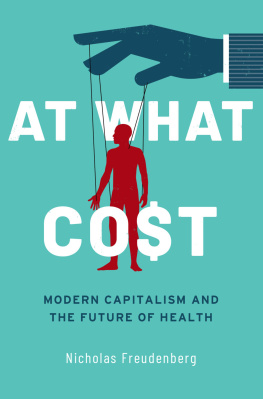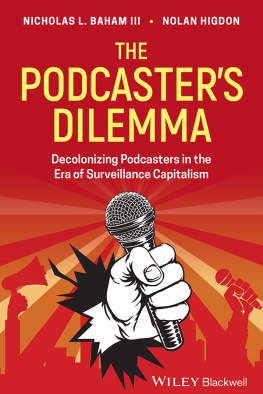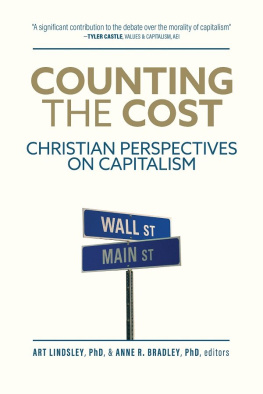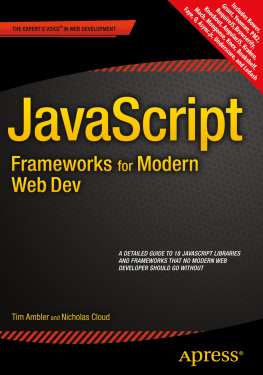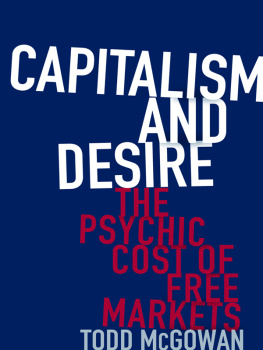Nicholas Freudenberg - At What Cost : Modern Capitalism and the Future of Health
Here you can read online Nicholas Freudenberg - At What Cost : Modern Capitalism and the Future of Health full text of the book (entire story) in english for free. Download pdf and epub, get meaning, cover and reviews about this ebook. year: 2020, publisher: Oxford University Press, genre: Politics. Description of the work, (preface) as well as reviews are available. Best literature library LitArk.com created for fans of good reading and offers a wide selection of genres:
Romance novel
Science fiction
Adventure
Detective
Science
History
Home and family
Prose
Art
Politics
Computer
Non-fiction
Religion
Business
Children
Humor
Choose a favorite category and find really read worthwhile books. Enjoy immersion in the world of imagination, feel the emotions of the characters or learn something new for yourself, make an fascinating discovery.
- Book:At What Cost : Modern Capitalism and the Future of Health
- Author:
- Publisher:Oxford University Press
- Genre:
- Year:2020
- Rating:4 / 5
- Favourites:Add to favourites
- Your mark:
- 80
- 1
- 2
- 3
- 4
- 5
At What Cost : Modern Capitalism and the Future of Health: summary, description and annotation
We offer to read an annotation, description, summary or preface (depends on what the author of the book "At What Cost : Modern Capitalism and the Future of Health" wrote himself). If you haven't found the necessary information about the book — write in the comments, we will try to find it.
At What Cost : Modern Capitalism and the Future of Health — read online for free the complete book (whole text) full work
Below is the text of the book, divided by pages. System saving the place of the last page read, allows you to conveniently read the book "At What Cost : Modern Capitalism and the Future of Health" online for free, without having to search again every time where you left off. Put a bookmark, and you can go to the page where you finished reading at any time.
Font size:
Interval:
Bookmark:


Oxford University Press is a department of the University of Oxford. It furthers the Universitys objective of excellence in research, scholarship, and education by publishing worldwide. Oxford is a registered trade mark of Oxford University Press in the UK and certain other countries.
Published in the United States of America by Oxford University Press
198 Madison Avenue, New York, NY 10016, United States of America.
Oxford University Press 2021
All rights reserved. No part of this publication may be reproduced, stored in a retrieval system, or transmitted, in any form or by any means, without the prior permission in writing of Oxford University Press, or as expressly permitted by law, by license, or under terms agreed with the appropriate reproduction rights organization. Inquiries concerning reproduction outside the scope of the above should be sent to the Rights Department, Oxford University Press, at the address above.
You must not circulate this work in any other form
and you must impose this same condition on any acquirer.
Library of Congress Cataloging-in-Publication Data
Names: Freudenberg, Nicholas, author.
Title: At what cost : modern capitalism and the future of health / by Nicholas Freudenberg.
Description: New York, NY : Oxford University Press, [2021] |
Includes bibliographical references and index.
Identifiers: LCCN 2020044862 (print) | LCCN 2020044863 (ebook) |
ISBN 9780190078621 (hardcover) | ISBN 9780190078645 (epub)
Subjects: MESH: Public Health Administration | Industry | Socioeconomic Factors |
Capitalism| History, 21st Century | United States
Classification: LCC RA418 (print) | LCC RA418 (ebook) | NLM WA 540 AA1 |
DDC 362.1dc23
LC record available at https://lccn.loc.gov/2020044862
LC ebook record available at https://lccn.loc.gov/2020044863
2020 was a banner year for followers of the apocalypse. Massive fires, often aggravated by heat waves and droughts, burned forests and houses in California, Washington, Oregon, Nevada, and Colorado as well as in Indonesia, Brazil, and Australia. A record-breaking 30 tropical storms or hurricanes hit states on the Gulf and Atlantic coasts as well as in the Caribbean, killing almost 400 people, destroying homes and communities, and imposing costs of more than $33 billion. And of course there was the COVID-19 pandemic, estimated by the end of 2020 to have infected at least 60 million people and killed at least 1.5 million around the world. In the United States alone, the pandemic put 30 million people out of work temporarily or permanently, pushing many into hunger and food insecurity, homelessness, and misery.
Political apocalypses also proliferated. Around the world, authoritarian, nationalist, anti-democratic or corrupt governments undermined democracy in Brazil, Turkey, Poland, Saudi Arabia, and the United States, leading to predictions of the collapse of liberal Western civilization. Racial and economic inequality, already at record levels globally and in the United States, further widened, precipitating the largest mass mobilizations in U.S history. The election defeat of President Donald Trump in November raised hope for a restoration of democracy in the U.S. but the almost 74 million votes he received signaled the continuing support for his brand of denigrating science, challenging norms of decency and compassion, and supporting the ultra-rich.
The catastrophes of 2020 amplified a cascade of other long-brewing health and social criseshuman-induced climate change, a persistent crisis of affordable housing, growing burdens of chronic diseases, rising deaths of despair from drug overdoses, alcoholism and suicide in many wealthy countries, increased surveillance and interference with peoples private lives through digital technologies, and a level of political polarization and disrespect for truth that jeopardized rational discourse as a strategy for solving problems.
While the spectacular disasters of 2020 attracted public and media attention, less noticed were the daily tribulations that ordinary Americans faced in their pursuit of health, life, liberty, and happiness. For the 34 million Americans with diabetes and the 88 million at risk of the disease, every meal can be a battle to find tasty, healthy food they can afford. For the 10 million Americans estimated to have lost their homes in the Great Recession of 2008 or the 500,000 Americans who now sleep on the street every night, safe, stable housing remains an elusive goal. For the 44 million Americans who have outstanding student loan debts totaling more than $1.7 trillion, the American dream of supporting a family, buying a house, and having a better life than your parents often seems out of reach. About two in five American workers53 million men and womenearn low wages, with many lacking benefits, health and safety protections, or the right to unionize. The synergistic impact of these experiences disproportionately affect Blacks, Latinx, recent immigrants, and women. Their constant struggles can make day-to-day living an ordeal and undermine self-esteem, dignity, and hope for the future, key foundations of health.
Will the human and environmental costs inflicted by the disasters of 2020 and before create new openings for imagining a different, more sustainable world? Or, as we saw in the national response to the 2008 financial crisis, will the nations commitment to business-as-usual whatever the cost predominate? Will the power that has been concentrated in the hands of corporations and the wealthiest Americans over the last few decades again enable them to resist meaningful changes that improve the well-being of humanity and our planet? These are the questions I explore in At What Cost.
My explorations are shaped by my experiences as a public health researcher, practitioner, and activist. For the past four decades, I have studied and taught how social, economic, and political forces shape the health of communities and the opportunities for improving health and reducing health inequalities. With community organizations, schools, youth organizations, local government officials, my students, and other health workers, I have contributed to planning, launching, and evaluating health programs and policies created to reduce the health and social problems that threaten well-being in the United States and elsewhere. As an activist, I have had the privilege of participating in and studying many of the social movements that have struggled to create alternatives to health damaging policies and social structures. Two centuries of public health history have convinced me that it is the mix of science, public health practice, and social mobilization that leads to improvements in the health of populations. My goal here is to discover the magic blend of these three in these times that can reverse the damage to health and the cost to society of recent political and economic changes in the American economy.
For many years, those of us who came of age during the Cold War avoided using the word capitalism, fearful of its old-fashioned resonance or its risk of precipitating McCarthyite retaliation. Many chose more anodyne termsfree markets, neoliberalism, private sectorhoping perhaps to engage rather than alienate defenders of the status quo. More recently, in public health scholarship, the term commercial determinants of health has been used to describe how markets and the quest for profits shape health and disease, a term that may further obscure the roots of global threats to health.
Font size:
Interval:
Bookmark:
Similar books «At What Cost : Modern Capitalism and the Future of Health»
Look at similar books to At What Cost : Modern Capitalism and the Future of Health. We have selected literature similar in name and meaning in the hope of providing readers with more options to find new, interesting, not yet read works.
Discussion, reviews of the book At What Cost : Modern Capitalism and the Future of Health and just readers' own opinions. Leave your comments, write what you think about the work, its meaning or the main characters. Specify what exactly you liked and what you didn't like, and why you think so.

